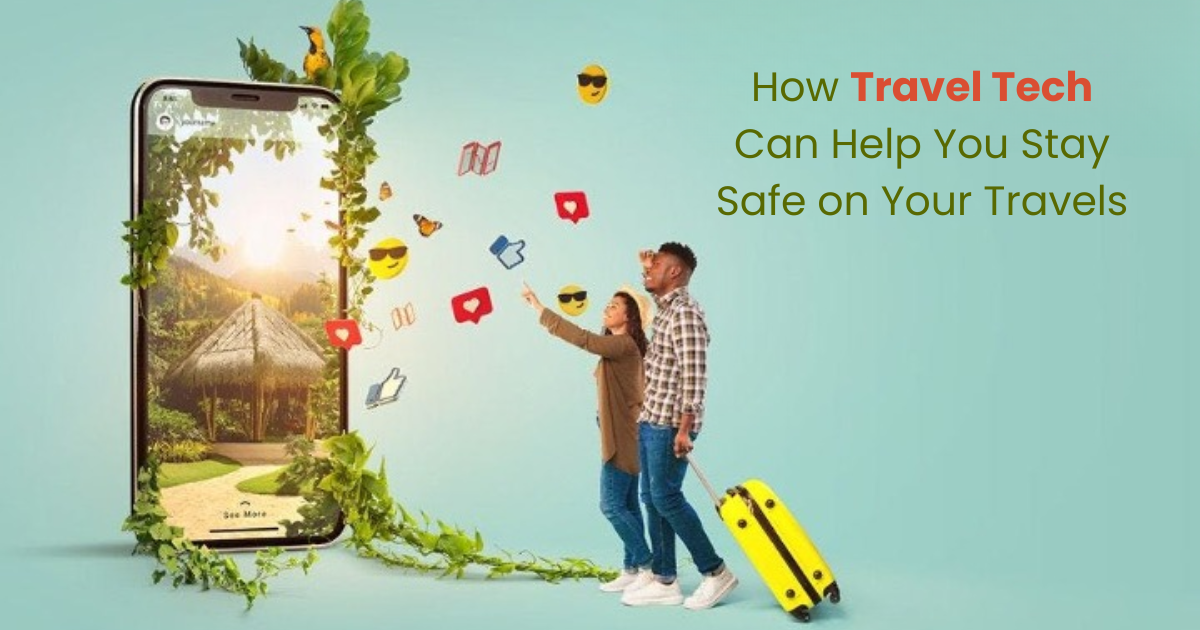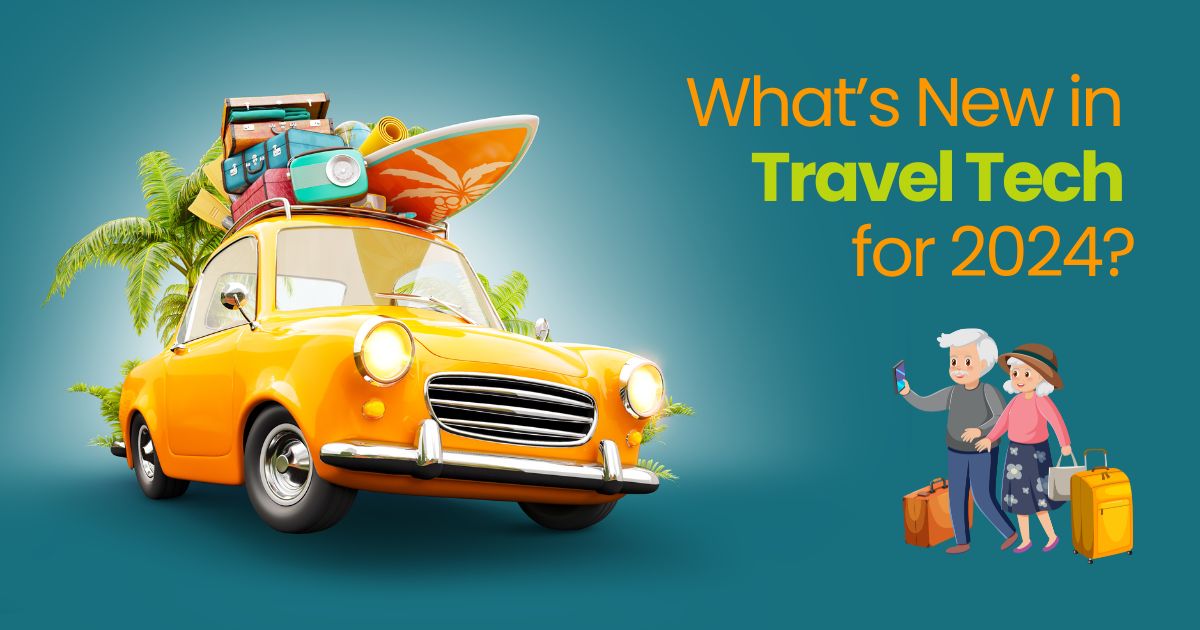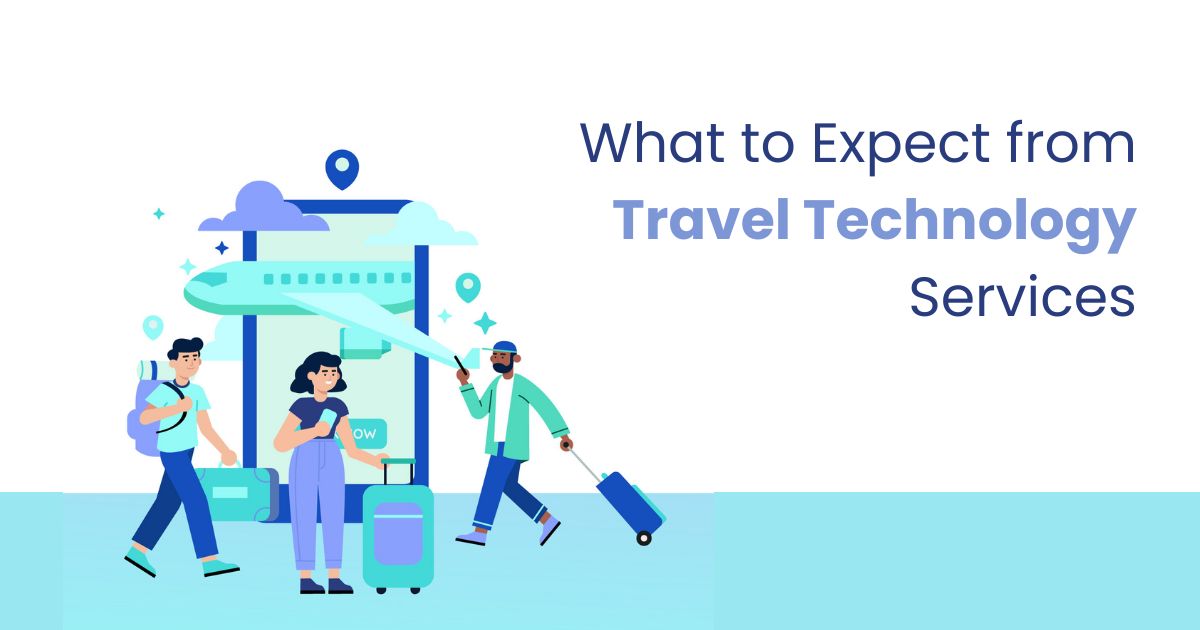The travel industry is undergoing a significant transformation, driven by rapid advancements in technology. As we navigate through 2024, travelers are seeking more convenience, efficiency, and personalization in their travel experiences. To meet these demands, a range of innovative travel tech services have emerged, enhancing every aspect of the travel journey. This article explores the essential travel tech services for 2024, offering detailed insights into how they are revolutionizing the way we explore the world.
Travel Technology Solutions: Enhancing Your Travel Journey with Advanced Technology Solutions1. Smart Booking Platforms
1.1 Personalized Recommendations
In 2024, smart booking platforms have become more sophisticated, utilizing artificial intelligence (AI) and machine learning (ML) to offer personalized travel recommendations. These platforms analyze user preferences, travel history, and real-time data to suggest destinations, accommodations, and activities tailored to individual needs. The result is a more customized and enjoyable travel experience.
- AI-Driven Suggestions: AI algorithms predict the best travel options based on user data.
- Dynamic Pricing: Real-time analysis ensures travelers get the best deals.
- Tailored Itineraries: Personalized itineraries are created based on user interests and preferences.
1.2 Seamless Integration
Modern booking platforms integrate seamlessly with other travel services, including flights, hotels, car rentals, and activities. This integration simplifies the booking process, allowing travelers to plan and book their entire trip from a single platform.
- One-Stop Solutions: Platforms that offer a comprehensive booking experience.
- Integrated Payment Systems: Secure and convenient payment options for all travel services.
- Unified User Experience: Consistent and user-friendly interfaces across devices.
2. Virtual and Augmented Reality (VR/AR) in Travel
2.1 Virtual Tours
Virtual reality (VR) and augmented reality (AR) technologies are transforming the way travelers explore destinations before their trips. Virtual tours allow users to experience attractions, hotels, and landmarks from the comfort of their homes, helping them make informed decisions.
- Immersive Experiences: High-quality VR tours that provide a realistic sense of place.
- Interactive Features: Users can explore different areas and interact with elements in the virtual environment.
- Accessibility: Virtual tours make travel experiences accessible to those who may not be able to visit physically.
2.2 Augmented Travel Experiences
AR enhances real-world travel experiences by overlaying digital information on the physical environment. Travelers can use AR applications to receive real-time information about landmarks, navigate unfamiliar areas, and discover hidden gems.
- Enhanced Navigation: AR apps provide turn-by-turn directions and real-time information.
- Historical Insights: Detailed historical and cultural information about landmarks and attractions.
- Interactive Guides: AR-enabled guides that offer rich, multimedia content.
3. Mobile Travel Apps
3.1 Comprehensive Travel Management
Mobile travel apps have evolved to become indispensable tools for modern travelers. These apps offer a wide range of features, from booking and itinerary management to real-time updates and travel assistance.
- All-in-One Solutions: Apps that handle booking, itinerary, navigation, and more.
- Real-Time Updates: Notifications about flight changes, weather updates, and travel alerts.
- Offline Capabilities: Features that work without internet access, crucial for remote destinations.
3.2 Travel Assistance and Support
Travel apps now provide 24/7 assistance and support, helping travelers handle unexpected situations. This includes customer service chatbots, emergency assistance, and travel insurance management.
- Chatbot Support: AI-powered chatbots offering instant support and answers to common queries.
- Emergency Services: Access to emergency contacts, medical services, and local authorities.
- Insurance Integration: Easy management of travel insurance policies and claims.
4. Sustainable Travel Solutions
4.1 Eco-Friendly Accommodations
Sustainability is a growing concern for travelers, and tech services are responding with eco-friendly options. Platforms now highlight accommodations with sustainable practices, such as energy-efficient buildings, waste reduction programs, and community support initiatives.
- Green Certifications: Accommodations certified for their environmental practices.
- Carbon Footprint Tracking: Tools to track and offset the carbon footprint of travel.
- Local Community Support: Options that contribute to local economies and communities.
4.2 Sustainable Transport Options
Travel tech services are promoting sustainable transport options, including electric vehicles (EVs), shared mobility solutions, and public transport. These options reduce the environmental impact of travel and promote greener choices.
- EV Rentals: Platforms offering electric vehicle rentals and charging infrastructure.
- Shared Mobility: Car-sharing, bike-sharing, and ride-sharing services.
- Public Transport Integration: Real-time information and ticketing for public transport systems.
5. Contactless Travel Technology
5.1 Biometric Identification
The adoption of biometric technology is streamlining the travel process, making it more secure and efficient. Airports, hotels, and other travel services are increasingly using biometric identification for check-ins, security, and payments.
- Facial Recognition: Quick and secure check-ins and boarding processes.
- Fingerprint Scanning: Enhanced security and identification at various touchpoints.
- Iris Scanning: High accuracy and convenience in identification processes.
5.2 Digital Payments
Contactless payment options have become essential in the travel industry, providing a safe and convenient way to handle transactions. From mobile wallets to digital currencies, travelers have a variety of options to choose from.
- Mobile Wallets: Secure payments through apps like Apple Pay, Google Wallet, and Samsung Pay.
- Cryptocurrency Payments: Acceptance of digital currencies for travel services.
- NFC Payments: Quick and contactless transactions using Near Field Communication technology.
6. AI-Powered Travel Assistants
6.1 Virtual Travel Agents
AI-powered virtual travel agents are transforming customer service in the travel industry. These agents can handle bookings, provide travel advice, and manage itineraries, offering personalized support around the clock.
- 24/7 Availability: Constant support without human limitations.
- Personalized Assistance: Tailored recommendations and itineraries based on user preferences.
- Multi-Language Support: Assistance in multiple languages for global travelers.
6.2 Predictive Analytics
AI and predictive analytics are enhancing travel planning by anticipating traveler needs and preferences. These technologies analyze data to predict trends, optimize travel plans, and offer proactive suggestions.
- Travel Trend Analysis: Insights into popular destinations and travel patterns.
- Optimized Itineraries: AI-driven planning for efficient and enjoyable trips.
- Proactive Suggestions: Recommendations based on real-time data and user behavior.
7. Enhanced Security Measures
7.1 Cybersecurity in Travel
With the increasing reliance on digital platforms, cybersecurity has become a critical aspect of travel tech. Ensuring the security of personal data and transactions is paramount for both travelers and service providers.
- Data Encryption: Secure transmission and storage of personal information.
- Fraud Detection: Advanced systems to detect and prevent fraudulent activities.
- Privacy Protection: Compliance with global data protection regulations.
7.2 Health and Safety Protocols
In the wake of global health concerns, travel tech services are incorporating enhanced health and safety protocols. This includes real-time health updates, contact tracing, and sanitation measures to ensure traveler safety.
- Health Monitoring: Apps that provide real-time health and safety information.
- Contact Tracing: Tools to track and notify travelers of potential exposure to health risks.
- Sanitation Tracking: Information on cleanliness and sanitation measures at travel destinations.
8. Social Media Integration
8.1 Travel Inspiration and Sharing
Social media platforms are integral to travel planning and sharing experiences. Travel tech services are leveraging social media to offer inspiration, reviews, and real-time sharing capabilities.
- User-Generated Content: Authentic reviews and experiences from fellow travelers.
- Influencer Partnerships: Collaborations with travel influencers to showcase destinations.
- Real-Time Sharing: Features that allow travelers to share their experiences instantly.
8.2 Social Booking and Recommendations
Social media integration in travel tech services enables social booking and recommendations, allowing travelers to plan trips based on suggestions from their social network.
- Peer Recommendations: Travel suggestions from friends and family.
- Group Planning: Tools to coordinate and book trips with multiple travelers.
- Social Reviews: Integration of social media reviews and ratings into booking platforms.
Conclusion
The landscape of travel technology in 2024 is marked by innovation and personalization, aimed at enhancing the overall travel experience. From AI-powered assistants and biometric identification to sustainable travel options and VR/AR experiences, the essential travel tech services discussed in this article are shaping the future of travel. As travelers continue to seek convenience, efficiency, and unique experiences, these technologies will play a crucial role in navigating the world with ease. Embracing these advancements will not only make travel more enjoyable but also ensure that it is safe, sustainable, and tailored to the needs of the modern traveler.










